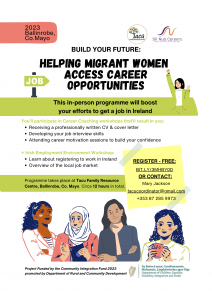Q: I can’t keep my CV under two pages. Everything I read suggests it should be maximum two pages. I have had a lot of jobs. I’m afraid to leave any of them out in case I end up mentioning a job in an interview, causing the interviewer to think I am hiding something. Thoughts? (LL, email)
A: Your question reflects a defensive mind-set not uncommon among job-seekers.
You’re coming to the process with a fear of being caught out. You’re seeing employer as adversary and that’s a bad place to start.
Yes, I believe all previous roles – unless they are miniscule or you a contract/freelance worker – should be listed in the CV. But you must learn to be selective in the detail you give: or else you will obscure the most relevant items.
For relevant roles, give detail of duties, achievements, and so on: for irrelevant ones, just list the job title, dates and employer, and move on.
So how might you identify the best stuff?
Ask yourself this question: if there was only one job you could tell the potential employer about, what would that job be? That one must be included in full detail.
Then ask if there was only one other job to tell the potential employer about, what would that be? Give that almost as much detail.
And work down through your career, giving fewer details in each instance, and you should arrive at the ‘job title and employer name only’ point after four or five jobs.
It can be done. I have seen some very experienced people trade on a one-page CV. Remember a CV exists not to trace every twist and turn of your life, but to sell you to the employer – think quality, not quantity.
I feel I’m too old to get a job
Q: I’ve just been made redundant. I’m age 56 and honestly believe no-one will employ me again. My technology skills are poor and no company will pick me ahead of all the hot young things out there. Do you have any crumbs of consolation? (OK, email).
A: To borrow and rework a phrase from the political arena, you are where you are. Very few people of any age are having a dandy time in the jobs market. It is important to retain your self-belief – and to know where you bring value.
What can you bring to a company? In your case, the answer might include experience, maturity, an understanding of how the world works, and the fact that you are likely to remain in your current physical location (i.e. you’re not a flight risk).
In terms of skills, what have you got? Don’t focus too much on what you haven’t got. Put your skills down on paper. You may struggle to identify transferrable skills (i.e. skills that translate from one sector to another) so a friend or family member might be able to help with those.
Put it all together in a good CV.
Then, start networking. You must know a great number of people from your work experience to date. Email people, call them, meet them – tell them you’re looking for work, give them your CV, and emphasise to them what you can bring to an organisation. Ask them to keep an eye out for you. You might be surprised how many people try to help out when they’re asked.
I feel those two steps would be a good start for you. The onus lies with you, so seize the initiative and start moving.
Sli Nua Careers (www.SliNuaCareers.com) have an online service that allows you to create a superb CV from the comfort of your own desk or home. For more details, visit www.slinuacareers.com/cv





